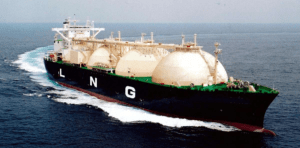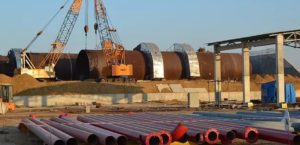- Perspective – November 2020
- State of the Nation
- Sassda Newsflash
- GPS World of Fame
- Sector Focus : Oil & Gas
- Global Insight
- Case Study
- Advertorial : Unique Welding
- Sector Focus : Holloware
- Advertorial : ‘No Flash in the Pan’
- Business Strategy
- Advertorial : Valbruna Stainless South Africa
- Maximizing the Cost-Effectiveness of Stainless Steel
- Technical Insights
- The importance of making the Correct Tool Choice
MOZAMBIQUE OIL & GAS PROJECT POINTS TO LARGE SCALE SA SUPPLIER OPPORTUNITIES
 Currently, the world faces two global challenges: the impact of COVID-19, coupled with a global energy transition away from coal and oil to natural gas centred locally around the developing Mozambique hydrocarbon industry; one which promises opportunities in boosting South Africa’s mid and downstream economies, together with regional employment and career upliftment.
Currently, the world faces two global challenges: the impact of COVID-19, coupled with a global energy transition away from coal and oil to natural gas centred locally around the developing Mozambique hydrocarbon industry; one which promises opportunities in boosting South Africa’s mid and downstream economies, together with regional employment and career upliftment.
This was highlighted in a recent two day joint Mozambique government and South Africa’s the dtic virtual conference where Sassda is aligned and well-positioned with access to industrial project opportunities that will benefit its Southern Africa members over the areas of policy, commerce, industry, supply chain and finance.
Speaking at the Mozambique Gas Virtual Summit, Strategy & Africa South Market Lead – Energy for PwC South Africa, James Mackay said that economic pressures due to COVID-19, together with a fall in demand for oil, has left Africa feeling the pressure in its transition to renewable and green energy futures. However, he confirmed that Mozambique offered an extraordinary resource for future opportunities.
“Predictions show that by 2050 as much as 80% of world’s energy will stem from optimal renewable energy resources, which will see a further boost in demand for green hydrogen from natural gas to create an extended and positive demand for clean energy into the future.”
With the focus on regional and economic inclusive growth and local content and industrialisation in Mozambique, Mackay, however, urged the private sector to move quickly in its drive for regional development opportunity.
Production and downstream prospects
 This optimism, and urgency, was iterated by Simone Santi, Vice-president for International Affairs at Energy/O&G/MineralRe CTA who is based in Vilanculos in the Inhambane Province where he oversees entrepreneurs and bilateral organisations in oil and gas mineral resources working within the associated Chambers of Commerce.
This optimism, and urgency, was iterated by Simone Santi, Vice-president for International Affairs at Energy/O&G/MineralRe CTA who is based in Vilanculos in the Inhambane Province where he oversees entrepreneurs and bilateral organisations in oil and gas mineral resources working within the associated Chambers of Commerce.
“Mozambique’s 5-year working developments for upstream Liquefied National Gas (LNG) projects has two mega projects online. We are set to receive the first floating LNG unit by ENI and by 2022 we will see the first gas being produced. By 2026, we predict a capacity of 2 x 15.2 million tonnes of liquified gas per annum. This presents a huge opportunity as we are seeing that in just 5 years, we can produce half the amount that Qatar can produce over 14 years. This will ensure Mozambique will be a big player in international oil and gas.”
Santi confirmed the main opportunity lies in doing business with LNG projects as an Assessment of Professional Competence (APC) contractor within Mozambique’s local construction and manpower sector; one which allows for international and local private sector applications and local industry in manpower, coating, cables production, NDT, welding, fuel and diesel, electrical, installation, transport, maintenance and civil and mechanical works.
“Another big opportunity is domestic gas use where we are seeing partnerships and service provider opportunities created to transform the local economy for internal consumption,” said Santi.
Domestic gas projects in Mozambique will create a multiplier effect for the economy where LNG construction projects contribute to an added value through development and upskilling of the local workforce, building infrastructure and by driving knowledge transfer of sustainable business opportunities for local and international enterprises.
Public-private partnership advantage
 In partnership with the Government of Mozambique, the aim is to maximize local participation. According to Santi; “We see public-private partnerships starting from a training opportunity and the transfer of knowledge as the long-term business drivers in economic diversification, which will engender cost reduction and qualitative and competitive advantages within Regulatory and Legislative requirements. Training and Train the Trainer opportunity is already seen at the IFPELAC Training Centre in Pemba, operated by Saipem, at Donellli- Unilurio in Pemba and CGG for technical interpretation and training at the University Eduardo Mondlane.”
In partnership with the Government of Mozambique, the aim is to maximize local participation. According to Santi; “We see public-private partnerships starting from a training opportunity and the transfer of knowledge as the long-term business drivers in economic diversification, which will engender cost reduction and qualitative and competitive advantages within Regulatory and Legislative requirements. Training and Train the Trainer opportunity is already seen at the IFPELAC Training Centre in Pemba, operated by Saipem, at Donellli- Unilurio in Pemba and CGG for technical interpretation and training at the University Eduardo Mondlane.”
Santi emphasised they would avoid monopoly and create transparency and the promotion of international partnerships in consideration of Emission Control Areas (ECA) and local content plans by defining mega projects within a ring of goods and services where business prospective can apply according to Oil & Gas regulatory law. Business agreements would be overseen by joint working groups between Mozambique’s Confederation of Economic Association (CTA) whereby 50% of costs would be shared between the CTA and Government for locally registered companies with most shares owned in Mozambique.
Sassda’s fast track to doing business
In light of these developments, Sassda Head of Market Intelligence & Exports, Lesley Squires, voiced the need for members to update their training imperatives. These include material selection and advanced stainless steel knowledge which Sassda is currently making available via webinar and in-person wherever possible.
“Sassda is on the board of the South African Institute of Welding and we would like to include them in our business submissions. They have a range of training courses, not specific to stainless steel but inclusive of it.
“Concerning the Mozambique LNG project, most oil and gas companies will be sourcing via their preferred suppliers, but we have identified the opportunity for local product supply to hospitals, clinics, hotels, and consumer goods such as sinks, pots, pans, cutlery etc.”
As one of the most active stainless steel industry associations in the world, Sassda members are encouraged to make use of their membership and the support the association provides through technical information, advice, education, training and skills upgrading.
|
|

